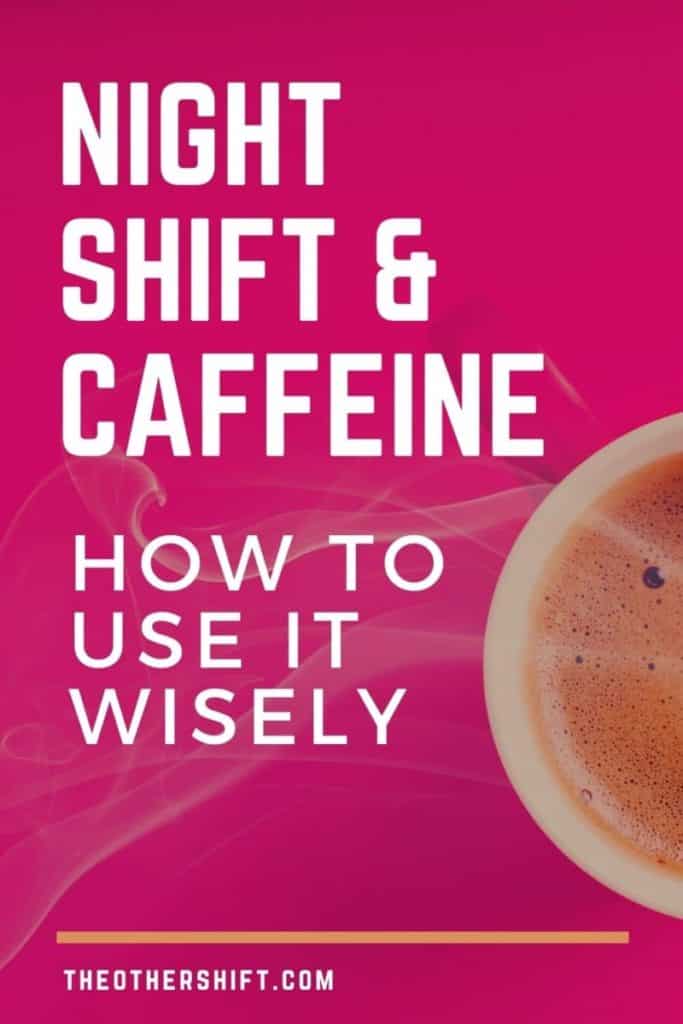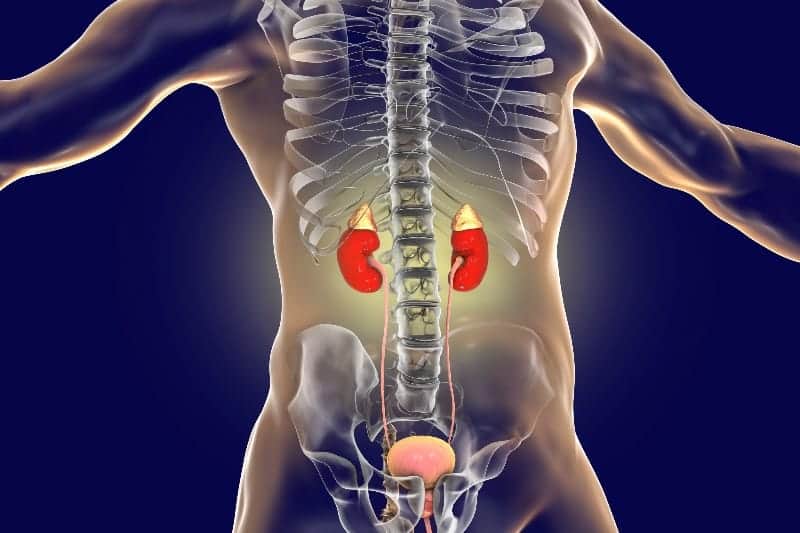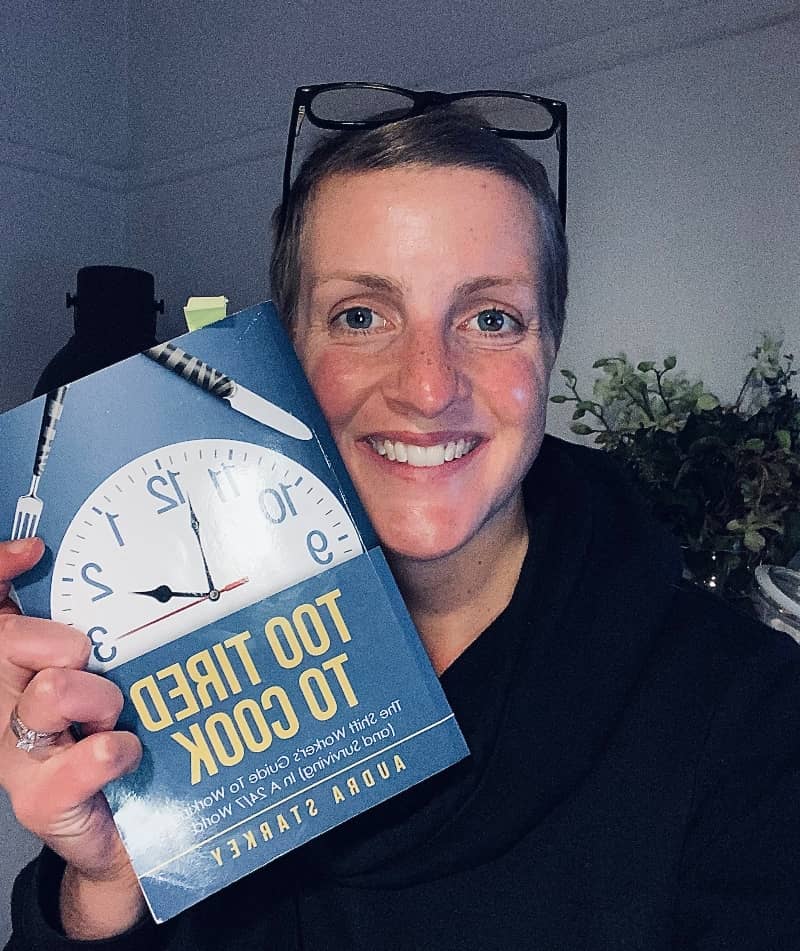Disclosure: This page may contain affiliate links, meaning we receive a commission if you decide to make a purchase through our links, but this is at no additional cost to you. Please read our disclosure and privacy statement for more info.
Caffeine, a night shifter’s best friend and worst enemy. Caffeine is great at what it does, keeping us alert during our shift, but it can often come back to haunt us when it is time to finally get some sleep. Caffeine itself can be consumed in a number of different forms, but not all caffeine is created equal. Therefore, how strategic are you about your caffeine consumption during the night shift?
Consuming caffeine on night shift isn’t a problem, but you should refrain from consuming it within 6 hours of going to bed. You should never consume more than 400 mg of caffeine per 24-hour period, which is about 4 cups of brewed coffee, due to the short and long term health risks like chronic insomnia and anxiety.
So you love coffee or some other kind of caffeine-filled beverage I presume? Our aim throughout this post is to provide you with a healthy strategy to feeling energized during night shift, that can involve caffeine but in the right amounts.
Is Caffeine Okay To Drink On Night Shift?
Caffeine is a quintessential part of the night shift because it helps keep you feeling alert and energized when you might otherwise feel fatigued. That said, caffeine can be a doubled edged sword. (source)
Here is a quick pros and cons chart to help illustrate the trade-offs for caffeinating during the night shift.
| Pros of Caffeine | Cons of Caffeine |
|---|---|
| Increased alertness, which reduces the risk for on-the-job error and injury. | May cause insomnia after your shift is over. |
| Caffeine is not an addictive substance. | Caffeine withdrawal is a real thing that can contribute to headaches. |
| Caffeine can lower your risk of developing cardiovascular disease, cancer and diabetes. | Some sources of caffeine are unhealthy, sugary and may exacerbate existing health conditions. |
| Caffeine is diverse, you don’t have to love coffee to consume caffeine. | Getting your fix can be expensive if you find yourself hooked on pricy gourmet beverages. |
So is caffeine good for night shift? It can be, but we often go overboard. And this can lead to short and long term health implications we don’t need to flirt with.
For vulnerable night shift workers (pregnant and lactating women, children and adolescents, young adults and people with underlying heart or other health conditions) caffeine consumption could be harmful, including impairments in cardiovascular function, sleep and substance use.
But for those of us who don’t fit the “vulnerable criteria”, caffeine consumption is relatively safe. I do need to point out the negative side effects though so you know what to look for if you think you might be overdoing it;
- Jitters
- Increased anxiety
- Insomnia
- Headaches
- Heartburn
- Heart palpitations
If you experience any of these symptoms, it is probably a sign that you need to reduce your caffeine intake, eliminate caffeine from your diet entirely, or at least have a conversation with your doctor.

What Kind of Caffeine Is Best for Night Shift?
Not all caffeine is created equal. Heck, not all coffee is created equal when it comes to caffeine content. So, what should you be consuming to achieve the best results during night shifts?
Truth be told, it depends on you. There are some personal factors that will influence what types of caffeine works best for you including, caffeine tolerance, shift length, lifestyle and sleep hygiene.

Some night shift workers need x2 double shoot espresso’s to get them going, while for some the caffeine concentration in decaf coffee is plenty to sustain the “high” they need.
Let’s discuss the caffeine content in popular beverages for night shift workers;
| Beverages | Caffeine Content |
|---|---|
| 7 Eleven brewed coffee – 16oz/473ml | 280 mg |
| Arby’s Jamocha Shake – 16oz/473ml | 11.6 mg |
| Chai Tea – 8oz/236ml | 50 mg |
| McDonald’s (McCafe) Latte – 16oz/473ml | 142 mg |
| Espresso – 1.5oz/44ml | 77 mg |
| Bottled Iced Coffee Dunkin Donuts – 13.7oz/405ml | 171 mg |
| Monster Energy – 16oz/473ml | 160 mg |
| Death Wish Coffee – 12oz/354ml | 728 mg |
| Mountain Dew – 12oz/354ml | 54 mg |
| Starbucks Grande Coffee – 16oz/473ml | 310 mg |
Take a look at the video below which explores 6 things you probably don’t know about caffeine.
When Can I Drink Coffee on Night Shift?
Eradicating caffeine is ideal for our health but is probably the least sustainable option. So the next best thing is to start your night shift with caffeine then switch to something else. If you’re craving one during your break make sure it’s at least 6 hours before you intend on sleeping to minimize sleep disturbance.
Finding the perfect coffee equipment can be a tough task, you can find reviews of various machines on Coffeeness [3].
What Happens Inside Our Body When We Consume Caffeine?
Interestingly, inside our cells, caffeine triggers the adrenal glands (these are the little glands that sit on top of your kidneys – pictured below as the little yellow dome like hats) to produce the stress hormones adrenalin and cortisol. Yes, cortisol is the one often blamed for weight gain we talked about in this post about weight gain.

This causes a surge in your blood sugar to provide you with the energy and the fuel to carry on with your day or night.
Though this may seem pretty harmless, caffeine doesn’t cure tiredness. It is simply tricking your body into thinking it’s not tired.
It essentially covers up the holes to where adenosine would normally live, a substance which builds up during the day to cause tiredness. It’s pretty clever really.
If you’re only drinking caffeine occasionally, this covering up process won’t be a problem for you. However, if you’re drinking it daily, multiple times a day, these “homes” or receptors where the adenosine lives begins to change and adapt often requiring more caffeine for the same effect.
Just imagine the crash you’ll feel when the caffeine begins to wear off and the adensoine refill those holes…

How To Stay Awake On Night Shift Without Caffeine
Walking up stairs. I know what you’re thinking. I can’t be bothered. Just hear me out. I was recently reading “Too Tired To Cook“, one of my favorite shift work help books, and stumbled across a chapter titled, Go Easy on the Cups of Stress (coffee and Energy Drink) and it got my attention.
Inside this chapter, Audra discusses a study undertaken on chronically sleep-deprived women who were getting less than 6 hours sleep a night. It showed that walking up and down stairs for 10 minutes proved to be more energizing than consuming 50 milligrams of caffeine, which is about the size of a small cup of coffee.
If you don’t have stairs at work, don’t use this as an excuse. Doing step-ups, jumping rope, jumping jacks or even simply walking around the office quickly are good alternatives. When we are bored we eat, so don’t let it get to this.

Another alternative is drink green tea or matcha which contains L-theanine. According to Healthline, it’s reported to help ease anxiety, stress and reduce insomnia.
The kind of matcha tea we like to drink is
Coconut water is another tasty solution. One of the side effects though is feelings of fullness or stomach upset so take it easy if you’re fresh to this beverage. (source)
If you still want the coffee texture and feel, try chicory coffee. It can be roasted, brewed and ground but it is caffeine-free. It contains inulin, a soluble fiber that may aid in digestion and support a healthy gut.
Golden milk is also something you could try. Sounds exotic I know. It’s a warm, rich caffeine-free substitute for coffee that incorporates spices such as ginger, cinnamon, turmeric and black pepper. Though you can buy it from Amazon in the above link, you can also make it yourself in 5 minutes by following these three steps;
- In a saucepan, combine 1 cup (237 ml) of milk or a non-dairy alternative with 1/2 teaspoon of ground turmeric, 1/4 teaspoon of cinnamon, 1/8 teaspoon of ground ginger and a pinch of black pepper. Optionally, add honey to taste.
- Warm the mixture on low to medium heat, stirring frequently to avoid burning.
- Once heated, pour into your favorite tumbler and enjoy at 4am. (source)
We have used a commonsense approach when drinking coffee on night shift. If your sleep is starting to become effected and you’re suffering the effects we explained earlier, like jitters and increased anxiety, you have to take action.
Either reduce how much you’re drinking or switch to something else. If you need more options we have written an entire post about this titled, What Should I Drink on Night Shift? 10 Energy Boosting Beverages. Check it out.
Does Drinking Coffee Contribute to Weight Gain?
Weight gain may be linked to coffee consumption due to the additives such as cream, milk, syrup and sugar and also the potential to negatively impact sleep. Coffee drunk in isolation however doesn’t cause weight gain and may in fact help with weight loss due to appetite suppression and an increased metabolism.
I mentioned earlier that caffeine can sometimes cause headaches. In the video below I explore what else may cause headaches when working nights and how to find relief.
Final Thoughts: Night Shift and Caffeine
It is best to gradually reduce the amount of caffeine you consume over the course of your shift. So, while you may reach for that caffeine-packed substance at the beginning of your shift, it is probably not best to sling back an energy drink during your lunch break.
While this post certainly has not exhausted all there is to know about caffeine, (pun intended), we hope you have come away with a better strategy for using caffeine during your night shifts.
If you are looking for more resources to help you survive the night shift, we recommend checking out these posts:
- Night Shift Fatigue. How to Stop Feeling Constantly Tired
- How to Get Enough Vitamin D When Working Night Shift
- How to Best Prepare for Night Shift the Day Before
Cheers,

Disclosure: This page may contain affiliate links, meaning we receive a commission if you decide to make a purchase through our links, but this is at no additional cost to you. Please read our disclosure and privacy statement for more info.
Recent Posts
An examination of the night shift professions, that while sometimes underappreciated, are necessary for civilization, in its current form, to exist. A city can be thought of as a machine. Each...
Culminated from an exhaustive yet well-funded journey into the night, this article will prepare you for life outside of work while being a denizen of the dark. During days off, night shift...

